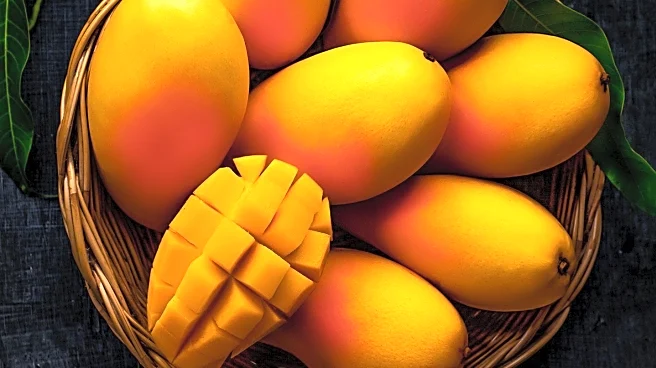What's Happening?
A recent study investigated the glycemic effects of consuming different mango varieties compared to white bread and glucose in individuals with and without type 2 diabetes (T2D). The study involved 95 participants, with 45 having T2D and 50 being non-diabetic. The research was conducted in two phases: the first phase used an oral tolerance test (OTT) to assess immediate glycemic responses, while the second phase employed continuous glucose monitoring (CGM) over three days. Results indicated that mango consumption resulted in non-significantly lower postprandial glucose peaks in non-diabetic subjects compared to glucose and bread. In T2D subjects, mango varieties showed similar glycemic profiles to bread, with a significant reduction in Mean Amplitude of Glycemic Excursion (MAGE) observed after mango ingestion.
Why It's Important?
The findings suggest that mango varieties may have a limited glycemic impact, making them a potentially suitable option for individuals with type 2 diabetes when consumed with portion control in calorie-restrictive diets. This could offer a dietary alternative for managing glycemic variability, which is crucial for diabetes management. The study provides insights into the potential benefits of mango consumption, challenging the common restriction of mango in diabetic diets due to glycemic concerns.
What's Next?
Further research could explore the long-term effects of mango consumption on glycemic control in diabetic patients, potentially influencing dietary guidelines and recommendations. Stakeholders such as healthcare providers and nutritionists may consider incorporating mango into diabetes management plans, emphasizing portion control and balanced diets.
Beyond the Headlines
The study highlights the importance of understanding the glycemic impact of various foods, which can lead to more inclusive dietary options for individuals with diabetes. It also underscores the need for personalized nutrition strategies that consider individual responses to different foods.









